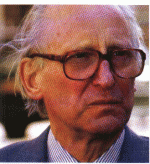The Economist – February 13th 2010
 The Rule of Law. By Tom Bingham
The Rule of Law. By Tom Bingham
TOM BINGHAM holds that what has come to be known as the rule of law is “the nearest we are likely to approach to a universal secular religion”. The key word is “universal”. Nigel Lawson, Margaret Thatcher’s chancellor of the exchequer, once described the National Health Service (NHS) as being similarly important to the British, but as Barack Obama’s attempts to reform America’s health-care system demonstrate, the NHS is not the envy of the world. For most people who live under the rule of law its blessings can be clearer and less ambiguous even than those conferred by liberal democracy or free markets.
Uniquely, Lord Bingham has held all three of Britain’s great judicial offices: Master of the Rolls, Lord Chief Justice and Senior Law Lord until his retirement in 2008. In recent times no British jurist other than lord Denning has wielded more influence on the development of the law. In this short but important book, Lord Bingham begins by outlining the historical milestones (from the Magna Carta to the Universal Declaration of Human Rights, adopted in 1948) that have contributed to understanding what is meant by the rule of law and what he believes are eight essential principles that underpin it.
Among these are the accessibility of the law, equality before the law, the right to a fair trial, the legal accountability of servants of the estate and so on. Most of Lord Bingham’s eight principles are uncontroversial, although some will feel that, in defining his preference for a “thick” over a “thin” definition of the rule of law, he goes too far by including social injustices, such as a right to education , which he feels “no one living in a free democratic society…should be required to forgo”.
However, it is when he gets to his final point, the requirement that states should regard their obligations under international law as no less forceful than those under national laws, that he really makes his mark. In a cool, but deadly dissection of the assault on the rule of law that was launched by the so-called “war on terror”, Lord Bingham deals first with the question of whether the allied invasion of Iraq was legal. He has no doubt that it was not. He argues persuasively that neither Security Council resolutions 678 nor 1441 could bear the weight that the British government was forced to place on them when confronted by the failure to obtain a further resolution explicitly authorizing the use of force. One cannot help feeling that Tony Blair and Lord Goldsmith might have had a hotter time under examination by Lord Bingham than by the Chilcot panel.
His greatest concern is the way in which the threat of terrorism has been used to justify the encroaching on civil liberties. Lord Bingham takes to task governments both in Britain and abroad who subvert the rule of law in the name of security, using Orwellian euphemisms such as control orders (house arrest without trial), extraordinary rendition (kidnapping) andenhanced interrogation techniques (torture). And he quotes Benjamin Franklin with approval: “He who would put security before liberty deserves neither”.
Lord Bingham ends by asking what makes the difference between good and bad government. It is, of course, the rule of law. He concludes:”It remains an ideal, but and ideal worth striving for, in the interests of good government and peace, at hone and in the world at large”.


